Zackary Sholem Berger's Blog, page 3
July 15, 2020
First Responders: a poem
July 14, 2020
Behind the Mask: a roundup of links on Covid and society
Hello all! I wanted to provide a roundup of some links and thoughts having to do with society and Covid-19. I’ll call this collection, for now, Behind the Mask because I’m less and less interested in whether people are Behaving Well in the context of Covid, and more about how structures of control and capital condition options in seen and unseen ways. I’ve tried to keep the less depressing material towards the top. I am trying to emulate the useful posts of James Stein, a Wisconsin cardiologist, on Facebook. 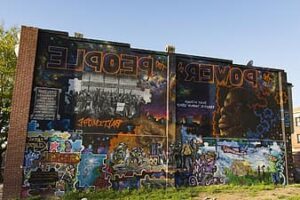
Mutual Aid
Our governments are failing. We can work within them to change our systems, or we can work around them to provide alternatives. This website (https://covidmutualaid.org/local-groups/) provides a database of mutual aid organizations around the world. I can’t vouch for its accuracy, but for Baltimore (where I live) it seems pretty comprehensive. The next question I would have is how to link them up together into larger structures. (Organize! But that’s usually presented as a matter of bringing individuals into groups, e.g. unions. But how do you bring nascent groups together?)
Schools – what next?
There are dueling statements from the American Association of Pediatrics (which issued a statement, then revised it) and any number of other groups. In Maryland, a consortium of teacher groups and PTAs called for the fall term to be entirely on-line. Whether schools are “open” or “closed” depends, obviously, on where the school is and what those words mean – but the effect on children, parents, teachers, and staff depends on truths that obtained pre-pandemic: who is supported and who is policed, who is advanced and who is expelled, who taught and who arrested. This heartrending story illustrates how. (https://www.propublica.org/article/a-teenager-didnt-do-her-online-schoolwork-so-a-judge-sent-her-to-juvenile-detention) This says less about in-person vs on-line teaching and more about the pandemic reflecting pre-existing injustices.
Why Don’t I Know More People with Covid?
You might. Or you might not live in a neighborhood with a high concentration of Covid patients. Or maybe you do have Covid. This piece does as good a job as any I’ve seen in describing the intersecting realms of housing, economics, and racism – and Covid. https://theappeal.org/coronavirus-racial-disparities-residential-segregation/
Vaccines by Themselves Won’t Save Us
The first stage of a vaccine trial was just published in the New England Journal of Medicine (https://www.nejm.org/doi/full/10.1056/NEJMoa2022483). But once there’s a vaccine, some people won’t feel comfortable getting it. Even those who might consider themselves as pro-vaccine. Why is that? Read more here — https://www.sciencedirect.com/science/article/pii/S0264410X15015339?
Causes of Death
A recent pair of articles in JAMA show that, during covid, there have been more deaths than in recent years – due to non-covid causes (https://jamanetwork.com/journals/jama/fullarticle/2768086). There are several potential explanations for this (we are undercounting covid deaths, or imprecisely measuring cause of death) but this reflects a lack of support for human life within our system that quibbling over cause-of-death advocacy, the way one usually does in the US, won’t help.
June 26, 2020
Voices from Black Lives Matter Protests: קולות פֿון בלעק לײַװס מעטער פּראָטעסטן
In recent weeks and months, videos clearly showing police murders of Black people in America have spread through social media and have once again reawakened the public. In response, mass protests emerged in dozens of American cities and towns—and these very protests were met with police violence. All of these events were part of the broader phenomenon of “Black Lives Matter,” one of the most significant social movements of our times. I have compiled several short reflections by myself and two other Jewish activists who took part in the protests.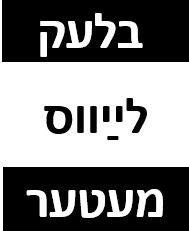
More at In Geveb.
May 8, 2020
Does Covid-19 discriminate?
I participated in a panel on NBC-6 (Miami) on Covid-19 in African Americans and Latinx.
An interview on WYPR about my time in the hospital
I was interviewed by WYPR about my time taking care of Covid patients in the hospital. You can listen below.
April 23, 2020
Placing one pebble on another
I finished a few evening shifts in the hospital (I asked for more, but we’ll see what I get assigned). I felt very lucky that they went all right. The roughest edges of the disease are felt in the emergency room, the intensive care units. There the doctors and nurses, the techs and janitors and sitters and nursing assistants, are accompanied by death and near-death. The typical hospital ward, on other hand, is usually (now as in non-Covid times) marked by large stretches of rhythmic tedium punctuated by frantic activity. 
The “bio” wards (as the containment units for Covid patients are called) do have a different feel, a churchlike hush, a procession of hooded figures, anterooms to don protective equipment and chambers to doff them. But even there, it was such a comfort for me to participate in the ordinary rituals of seeing patients in the hospital: low-wattage pleasantries and jokes exchanged with people at the nurses’ station; rumors of snacks; gossip about which hospital executive did what to whom and why.
Yes, there is death all around these days. There is the woman almost ready for discharge, whose husband is dying in another hospital’s ICU. [Identifying details changed.] There are the dashboards with the latest Covid statistics, which I and other doctors check obsessively to no great benefit. There is the vast gulf between models and statistics, on the one hand, and lived experience, on the other. R-naught is simulated. Fear is palpable.
To be an embodied human being and to fill a role (a small role, piling pebble on pebble as Newton had it), was a true joy. Working in healthcare can be joyful. That it’s scary and dangerous for so many right now is a product of the disease, but also born of our rapacious institution.
Wearing the face shield felt like bearing a priestly breastplate. As insufficient as I am, I felt like a healer when I leaned close to a man who was hoarse from the breathing tube that was removed from his throat just yesterday. “Thank you so much doctor,” he rasped. “It was nice to meet you.”
It was nice to meet him, too. And I squeezed his hand just because I could.
April 22, 2020
They don’t tell stories about people like these….
We’ve all heard that doctors and nurses are heroes. But what about the other people working at the hospital? Below are a couple of episodes, presented without embellishment or comment. 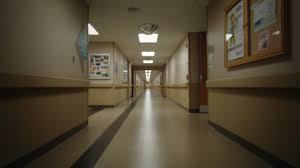
Scene: A hallway in Johns Hopkins Hospital
Dramatis personae: A white figure wearing a lime-green vest, like the kind a highway worker might wear, carrying a cilpboard; an African American woman pushing a custodial cart
Vest: You have to wear a mask in the hospital!
Cart: I can take a few second break.
Vest: CORONA DOESN’T TAKE A BREAK.
Cart: Just a break.
***
Scene: an elevator in the same hospital.
Me and a janitor enter. Me, white. She, black.
Her: Can I ask you a question, doc?
Me: Sure
Her: Can it really get on your skin?
Me: It sure can. But if you wash, and clean surfaces, you can really protect yourself.
Her: It’s scary.
Me: It sure is. Are you getting overtime?
Her: Every other day.
Me: Every other day? That’s some bullshit.
Her [laughs]: It is.
Me: And your union?
Her: They’re trying to get us hazard pay.
[We keep holding the elevator doors from closing, though we are both at our destination. As if we are loath to finish.]
Her: You stay healthy and take care of yourself.
Me: You too.
“We called and called”
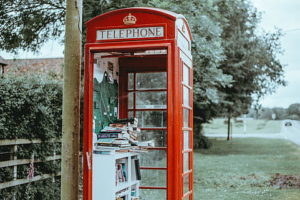 Last night on my shift I was assigned a woman in her 50s who had been transferred from another hospital with diarrhea, cough, and fever, diagnosed with Covid-19. She was now off any supplemental oxygen, ready to move to a less intensive unit in the hospital. [Identifying details changed in this story.]
Last night on my shift I was assigned a woman in her 50s who had been transferred from another hospital with diarrhea, cough, and fever, diagnosed with Covid-19. She was now off any supplemental oxygen, ready to move to a less intensive unit in the hospital. [Identifying details changed in this story.]
She was lying in bed, sweaty, stiff and uncomfortable. “Where are you from?” “In Ecuador.” Why’d you come here? “To make a better future,” she says, turning her face away. They were only living five to a room, she tells me. Her roommate was diagnosed positive. She’s still coughing. She was working in construction.
She had a son. The patient was from Ecuador but various Hopkins people were under different impressions about where the son was living. Someone had written “Honduras” with a Sharpie next to their number on the see-through sliding room door. It said “Guatemala” in a couple of notes in the chart. I think people were mixing up Spanish-speaking countries. “No, my son’s in Ecuador,” she said, confused. “Why would they be anywhere else?”
I called her son. I gave the international number to the hospital operator and before I finished giving the digits the operator finished the sequence for me. I guess other people had tried to call. There was a foreign-sounding ringing on the other end. “Alo?”
“Thank God for you,” he said. “We’ve called and called but no one picked up. We were so worried. She’s out of danger?”
“Not entirely. But she’s better.”
“God bless you and your work. We would like to send her something. Can we do that?”
“From Ecuador to the US?”
“Why not?”
Yes, why not.
April 20, 2020
Is Covid the same thing or different things?
 Today I took care of some people with Coronavirus in the hospital. There was a person in their 90s who didn’t want to go home to their family, because their family had forbade them from coming home with the virus. [I’ve changed details here and there to preserve confidentiality.] There was a 45 year old who can probably go home tomorrow and won’t even need rehab. A 55 year old homeless woman, who can only murmur that her knee hurts and she wants to go home. She lies in a darkened room, waiting for some overworked clinician to muster confidence against their fatigue that venturing in to see them is worth their personal risk. That the extra minutes they spend putting the interpreter on the line (in-person interpreters cost too much these days, and hospitals are stingy) is worth the technical hurdles.
Today I took care of some people with Coronavirus in the hospital. There was a person in their 90s who didn’t want to go home to their family, because their family had forbade them from coming home with the virus. [I’ve changed details here and there to preserve confidentiality.] There was a 45 year old who can probably go home tomorrow and won’t even need rehab. A 55 year old homeless woman, who can only murmur that her knee hurts and she wants to go home. She lies in a darkened room, waiting for some overworked clinician to muster confidence against their fatigue that venturing in to see them is worth their personal risk. That the extra minutes they spend putting the interpreter on the line (in-person interpreters cost too much these days, and hospitals are stingy) is worth the technical hurdles.
All these people have “the coronavirus.” But do they all have the same thing? We classify all of them into the bucket of the same disease, after all, because nosology [classification] groups phenomena in useful ways.
But the difference between the disease in a poor homeless woman who doesn’t speak English is night and day compared to a 45 year old with social supports.
I can say that Coronavirus isn’t even its own separate disease: it’s a projection of our inequities onto the canvas of the human body, using the bright light of a particular virus.
Thus a vaccine is only part of the coronavirus story, just like a cure for cancer is only part of the cancer story. It won’t change the narrative unless we change the plot, the characters, and the scenery.
April 19, 2020
On not being a hero
Health care workers come in for a lot of deserved praise during this pandemic age. I find much of it misplaced — at least in my case. As a physician, preparing this week to venture into the hospital (where usually I spend a minority of my time), I am not to be grouped with the emergency room clinicians or intensivists who take care of the sickest. But even more: most doctors don’t spend as much time at the bedside as nurses (who are at higher risk, with less respect and less pay) — not to mention janitors, who prop up the whole system on their backs while often not able themselves to bargain for better conditions.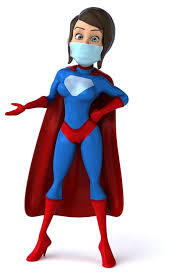
Another reason I don’t want to be a hero? The notion implies the individual is savior. Whether your tradition is Greco-Roman (Odysseus, Jason) or Jewish (Deborah, Moses), you don’t lack stories of the Anointed who comes in to stop the plague, defeat the enemy, or bring the Glorious Kingdom.
Naturally, the backlash against the hero came to medicine. We practitioners are most familiar with the theories of patient safety, which were born in the 1950s and 60s (from a long historical pedigree) according to which the hierarchy of old should be leveled out. Each should be empowered to speak up to prevent error and promote quality.
But this too is incorrect. Yes, we don’t bend the knee to the individual savior. But the leveled-out hierarchy of patient safety doesn’t actually exist. Individuals with privilege and power (such as physicians, such as I) must do more than function within imperfect and immoral systems. We must speak out to bring those systems into better alignment with morality and politico-economic justice. That is not heroic, but it is a small, strenuous rectification of functionality much like the restoration of homeostasis doctors and nurses strive towards every day.



